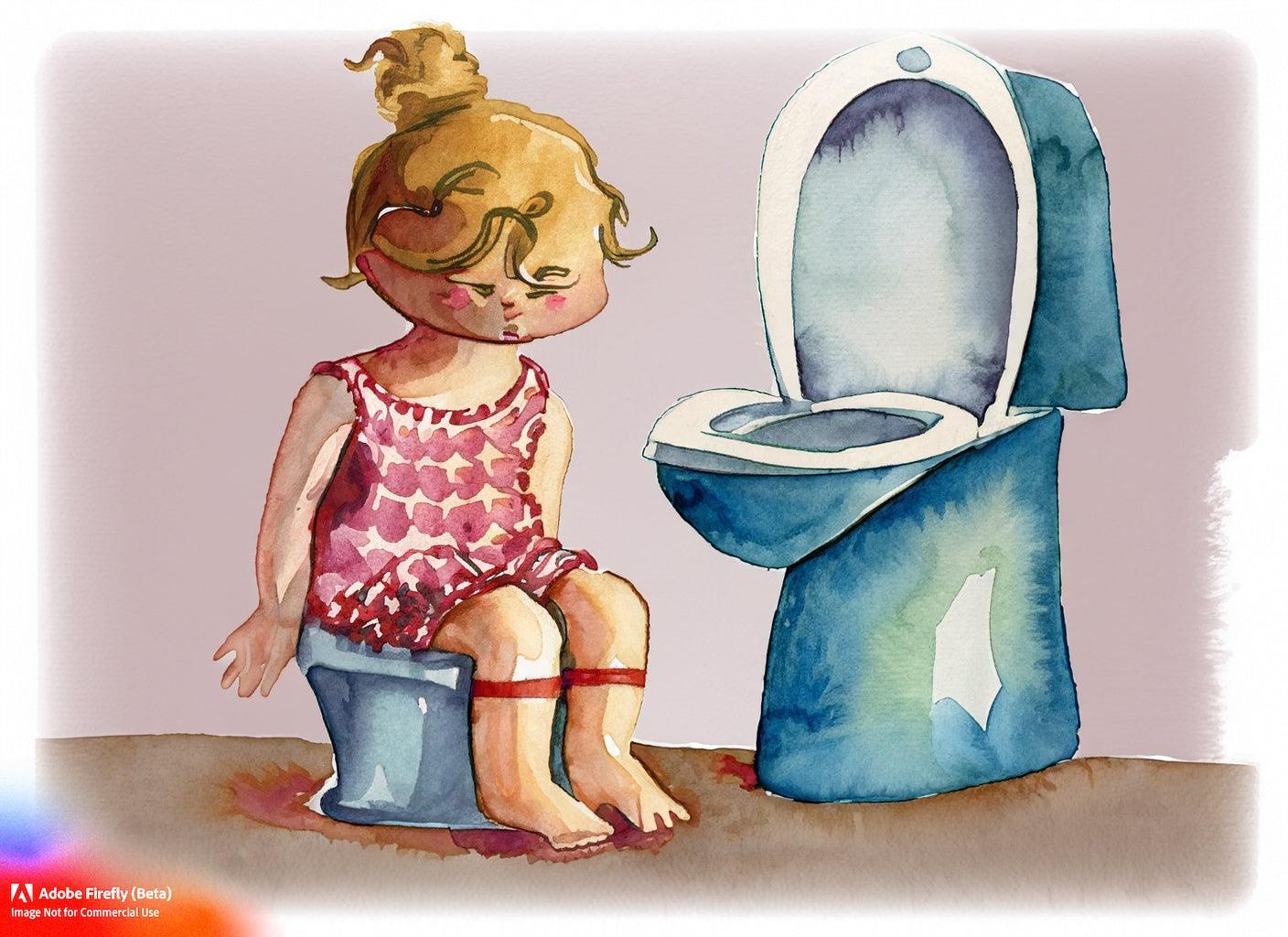Potty training is a significant milestone in every child's life, and it's an exciting time for parents too. However, some toddlers can feel anxious about the process, which can make it more challenging for everyone involved. As a parent, you want to make the potty training experience as smooth and stress-free as possible for your child. That's why we've put together some helpful tips to help your toddler overcome their potty training anxiety.
** View parenting books online from 4aKid
Understanding Potty Training Anxiety
When it comes to potty training, every child is different. Some may take to it quickly, while others may feel anxious and apprehensive about the process. Potty training anxiety can manifest in different ways, such as:
- Fear of the toilet or potty chair
- Resistance to sitting on the potty
- Refusal to use the potty or toilet altogether
- Fear of having accidents or making a mess
It's essential to understand that your child's anxiety is normal and that many children experience it during the potty training process. As a parent, it's your job to help your child feel comfortable and supported during this time.
** View parenting books online from 4aKid
Tips for Helping Your Toddler Overcome Potty Training Anxiety
-
Create a Positive Environment: Creating a positive environment can help your toddler feel more comfortable and confident during potty training. Decorate the bathroom with fun and colorful stickers or posters and make sure there is plenty of light in the room. You can also use positive reinforcement, such as offering praise and rewards, to encourage your child's progress.
-
Take it Slow: Potty training can be overwhelming for toddlers, so it's essential to take it slow. Don't rush the process, and be patient with your child. Encourage them to sit on the potty or toilet, but don't force them if they're not ready. Let them take the lead and follow their cues.
-
Read Books About Potty Training: Reading books about potty training can help your child understand the process and feel more comfortable. Choose books that are fun and engaging and feature characters they can relate to.
-
Practice, Practice, Practice: Practice makes perfect, so encourage your toddler to use the potty or toilet regularly. Try to establish a routine and make it a part of their daily routine. It's also essential to teach them proper hygiene, such as washing their hands after using the toilet.
-
Be Supportive: Finally, it's crucial to be supportive and understanding during the potty training process. Don't get frustrated or angry if your child has an accident or doesn't make progress as quickly as you'd like. Remember, every child is different, and they will get there eventually with your help and support.
** View parenting books online from 4aKid
FAQs
Q: What causes potty training anxiety in toddlers?
A: Potty training anxiety in toddlers can be caused by a variety of factors, such as fear of the toilet or the sound of the flush, a change in routine, feeling pressured or overwhelmed, or having a negative experience or accident during potty training.
Q: How can I tell if my toddler is experiencing potty training anxiety?
A: Signs that your toddler may be experiencing potty training anxiety can include resistance to using the toilet, fear or discomfort when sitting on the toilet, refusing to wear underwear, or regressing to earlier stages of potty training.
Q: What can I do to help my toddler overcome potty training anxiety?
A: To help your toddler overcome potty training anxiety, you can try strategies such as being patient and supportive, offering rewards and incentives, creating a calm and positive environment, and allowing your toddler to have some control over the process.
Q: Is it normal for toddlers to experience setbacks during potty training?
A: Yes, setbacks are normal during potty training and can be caused by various factors such as illness, changes in routine, or stress. It is important to be patient and consistent in your approach and to offer support and encouragement to your child.
Q: How long does potty training anxiety usually last?
A: Potty training anxiety can vary in duration depending on the child and the severity of their anxiety. With consistent support and positive reinforcement, most children are able to overcome their anxiety and successfully complete potty training.
** View parenting books online from 4aKid
Conclusion:
Potty training anxiety can be a challenging experience for both toddlers and parents, but with patience, support, and a positive attitude, it is possible to help your child overcome their anxiety and successfully complete potty training. Remember to create a calm and positive environment, offer rewards and incentives, and be patient and consistent in your approach. And don't forget to check out The Ultimate Guide to Potty Training: Tips and Strategies for Parents - Potty Training Made Easy by 4aKid for more helpful tips and advice. Good luck on your potty training journey!










